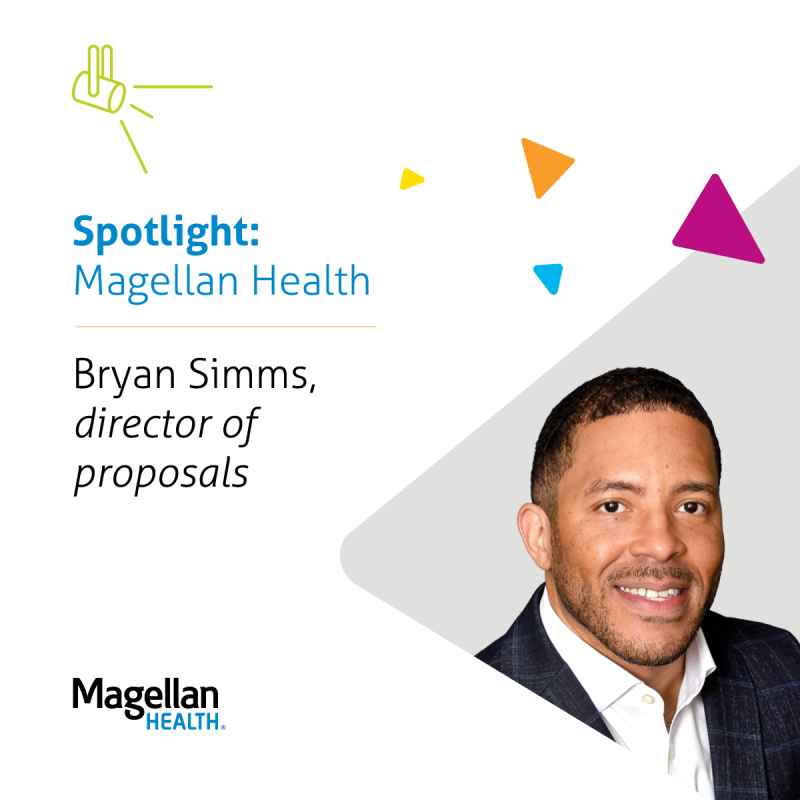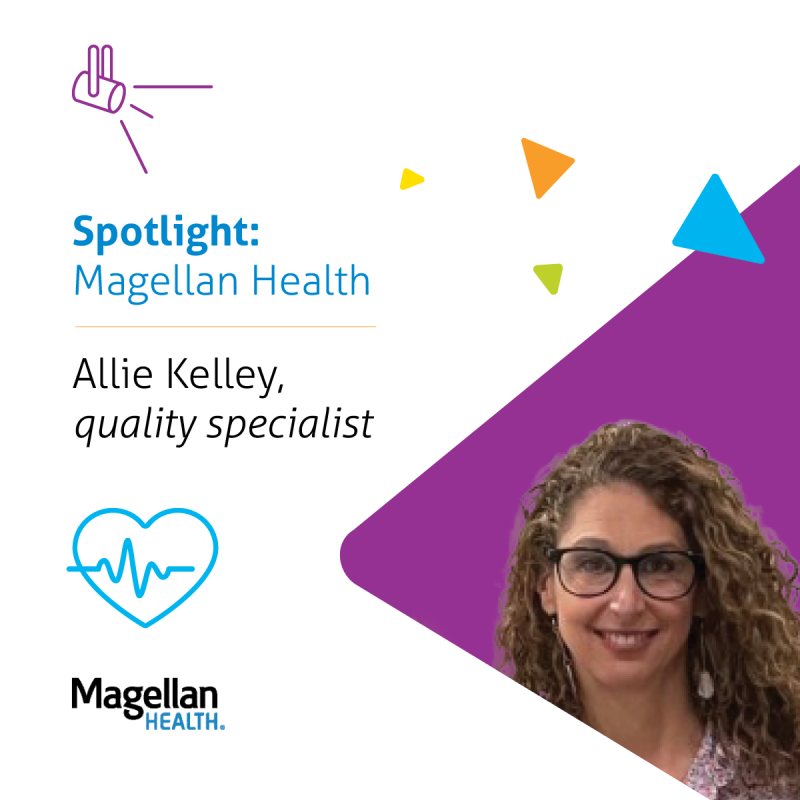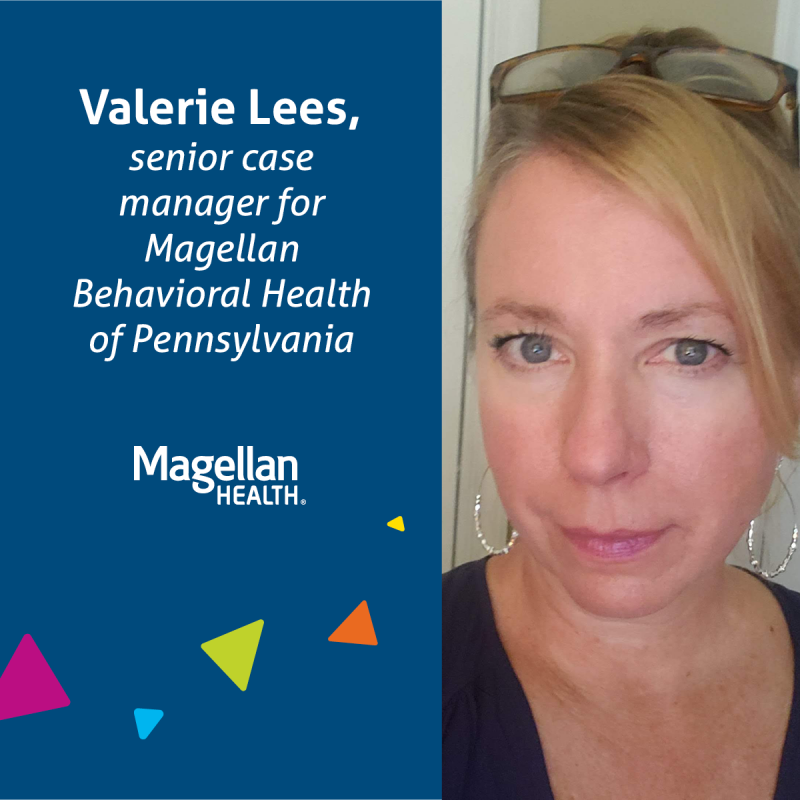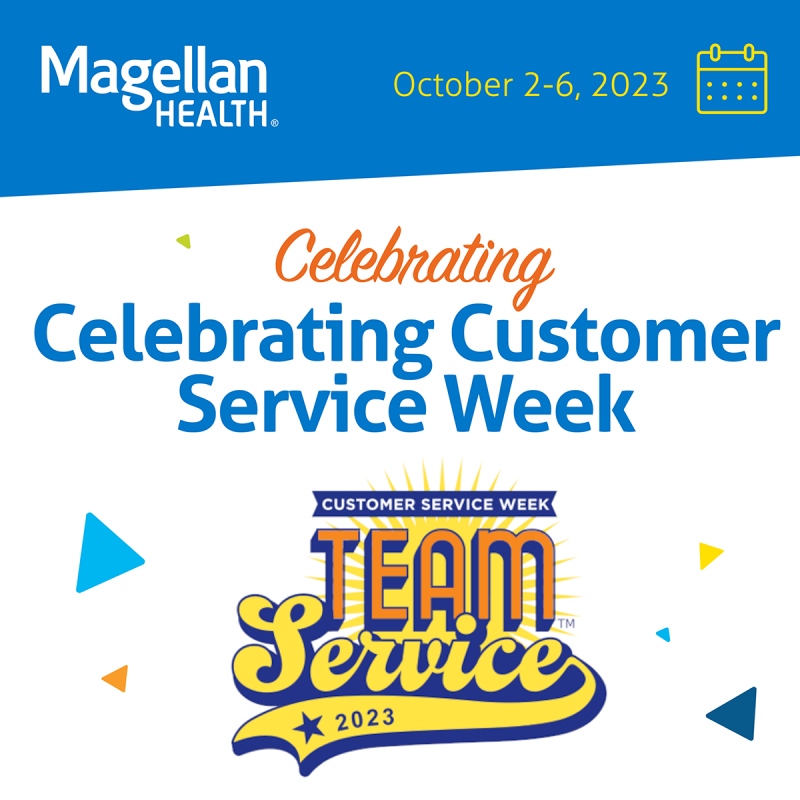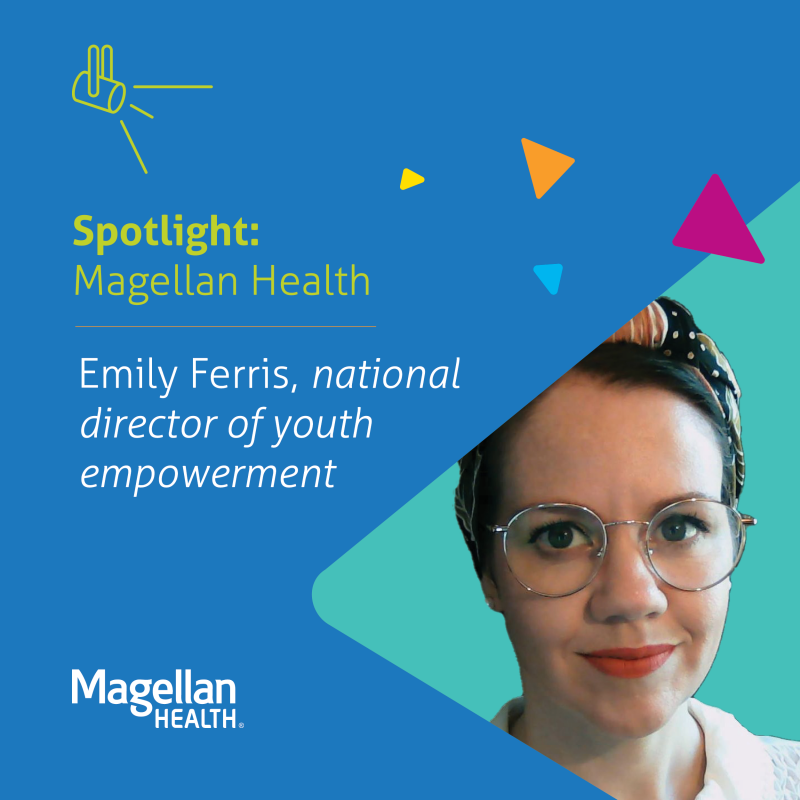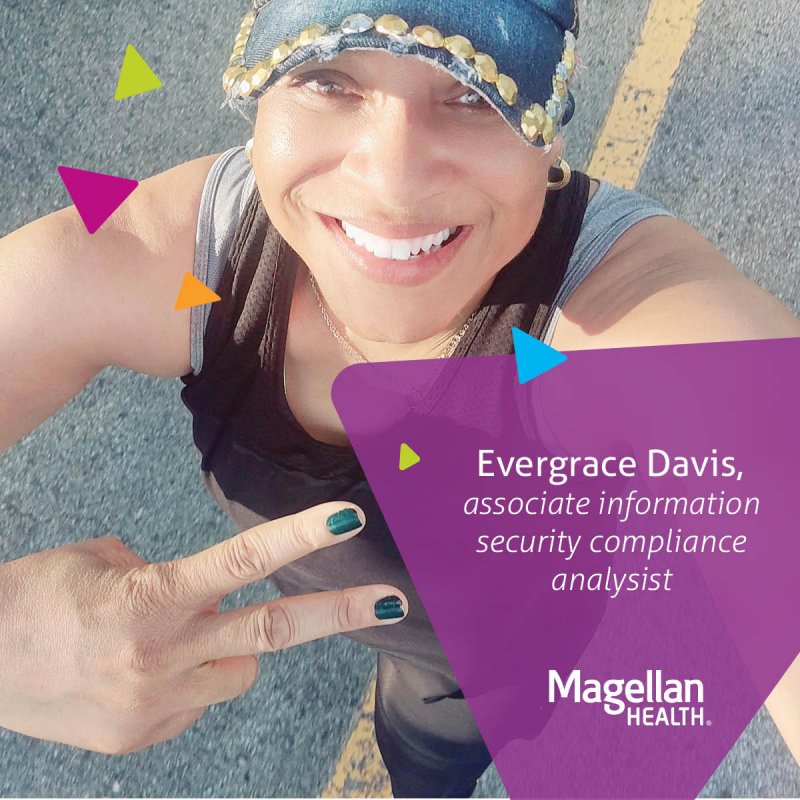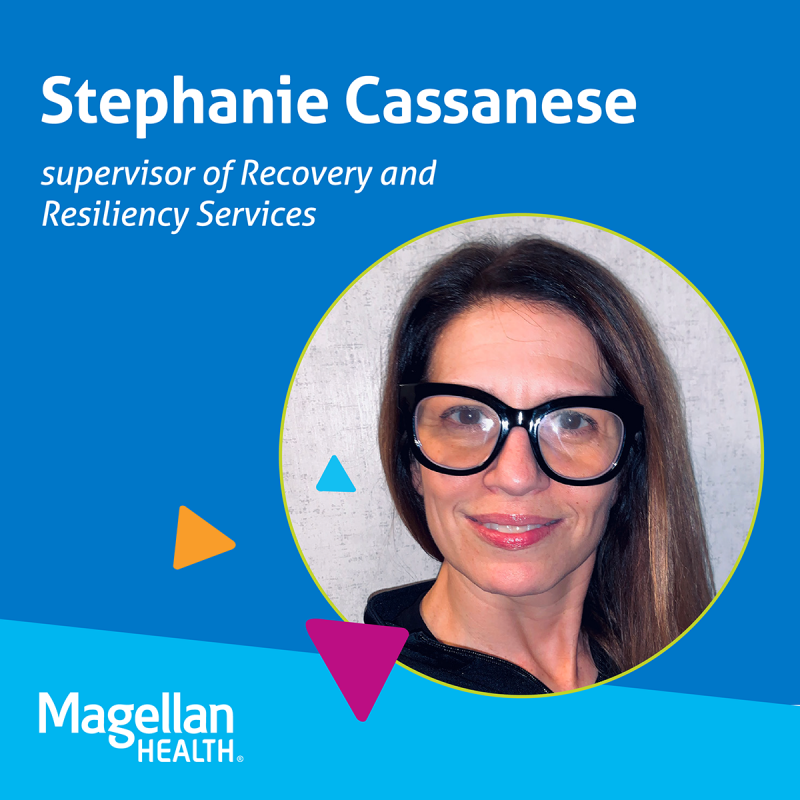DocTalk: Dr. Squillaro Shares How February’s ‘Time to Talk Day’ Helps to Normalize Mental Health Conversations
February 1st is known around the world as Time to Talk Day. This is a national day that encourages individuals to have an open dialogue about their mental health and to be supportive of others.
In this DocTalk article, Magellan Healthcare’s Medical Director Dr. Chris Squillaro shares why the act of talking about mental health is so important, the common misconceptions about mental health, and advice on how to approach the conversation for all age groups.
Q: In your opinion, why is it important to talk openly about mental health?
Dr. Chris Squillaro: Open conversation is important to communicate our feelings and emotions. Without the ability to share the things that we are feeling inside, they can become confusing, which can feel out-of-control and lead to worsening emotions and possibly behavior. Conversing about mental health also normalizes the subject matter. The more frequently mental health is openly discussed the more accustomed we become to discuss it within our relationships and as a society. Lastly, talking about it helps us to realize that we are not alone. Since mental health and substance use is so prevalent in our culture, every one of us likely has a connection to someone struggling with one or the other.
Conversely, not openly discussing mental health has no benefit. History has already shown that this only leads to stigma and worsens the potential problems associated with unaddressed mental health conditions. If we’re not openly discussing it, we’re also not openly seeking solutions when needed.
Q: In 2024, what do you think is the biggest misconception about mental health?
Dr. Squillaro: That mental health issues are resolving as fast as our concerns about COVID. Even though we are moving away from the day-to-day threat of COVID to us and our loved ones, mental health and the mental health system are far from recovered. We are seeing consequences both in terms of children and adolescents who lost social connection at critical junctures in their development and are struggling to catch up from the delay. This not only impacts them but also their family unit and their community. The increase in alcohol and drug use that occurred during the height of the pandemic was not resolved. Many of the people who developed addictions are just now starting to seek help and there are many who have not realized that there is a problem.
At the same time there is a greater need as the delivery of mental health services shifted. Services moved from primarily face-to-face to virtual. With this came a shift in the workforce. Many mental health workers sought virtual positions and left critical services that required face-to-face interaction. This left vacancies that have not been filled. Every service in every level of care is experiencing staffing shortages. The misconception is that as society normalizes, the mental health system has normalized and can accommodate the demand. However, we are not seeing that same level of normalization at a time when it is needed.
Q: How do you think we can create a more supportive and understanding community when it comes to mental health?
Dr. Squillaro: It starts in the home. Each generation has gotten better at this. The best way to influence change is to teach our young. More knowledgeable and understanding parents teach their children acceptance. These children then begin to make a difference as they interact in the community and in school. As the members of the generation mature, they create a more compassionate and embracing community. When children grow up with these concepts that are taught and modeled in the home, their thinking and behavior is more solidified and less likely to be influenced by many of the external influences that continue to be intolerant. I doubt anyone feels that society will eliminate extreme points of view that preach intolerance. But the hope is that these extremes get smaller with the majority being a community that is accepting and supportive.
Q: What role can friends, family, or colleagues play in supporting mental well-being, and how can they contribute positively to someone who may have mental health struggles?
Dr. Squillaro: In terms of having tougher conversations and feeling safe to communicate about mental health and mental health struggles, family and friends are critical. They contribute to each other’s lives by caring and having the best of intentions, even when saying things that aren’t always easy to hear or when someone isn’t necessarily ready for help. Many times, family and friends will be the first to identify when something is wrong and should be the first to speak up. The most positive thing you can do for someone is to let them know what you’re seeing and that you are a person they can come to for help. They may not be ready in that moment and they may need additional encouragement, but being there is the hardest and best thing to do.
On the other end, as things begin to improve, they will also likely see it first. They can encourage and provide that perspective to continue instilling hope. They can walk the recovery journey with their loved ones and make the connection even stronger.
Q: What advice would you give to someone hesitant to talk about their mental health issues?
Dr. Squillaro: An analogy I use to make this point is that emotions are like water. Eventually, there is nothing that can hold it back and when it breaks through, it is one of the most transformative and potentially destructive forces on the planet. Hesitating to talk about mental health doesn’t mean it’s not there. We’re only able to hold it back for so long before the pressure becomes so great that we no longer control how it comes out and what it destroys. Talking about mental health is like choosing to release the pressure and having a more constructive say as to how those emotions come out.
Q: Can you share 3-4 ways to begin an open dialogue with someone about your need for support?
- Identify the issue – you don’t need to know exactly what is wrong, only that your emotions are affecting your functioning.
- Identify someone who has historically made you feel safe.
- Take a risk – anxiety is about feeling conflicted. Choosing to move forward despite that feeling is how you begin to change take control of it.
- Gather information – after you’ve taken one risk, a second, third or more becomes easier. In that process, collect what people tell you and find your own path forward.
Q: Are there unique ways to approach a discussion about mental health with an adult versus a child (under 18) or a young adult?
Dr. Squillaro: Pay attention to the language you use. Whether it’s a child, adolescent, or an adult, they must be able to understand what you’re saying. Logically, children will need more simple language and concepts. It’s okay with adolescents to take a more informal approach to how you communicate. You’re trying to connect with someone who is at a stage where they may not want to rely on authority figures or feel that they know better. Adults can have a wide range of capabilities. Trying to match the language they use will put it in terms they can understand.
Be aware of their developmental stage. Each age group is at a different stage of brain development. Children will need to be told the answer and will need help developing the solutions. They are much more open to direction from authority figures. Adolescents are more impulsive and tend to believe they can easily overcome the issues. They may also be more comfortable receiving recommendations from peers, so look to engage people within their age group to help reach them. Adults have more lived experience, and their decision-making is more progressed. Predicting the consequences in areas of importance to them helps to prepare them engage in help. No matter what age group, sometimes people need time to process information.
As a person trying to support someone with a mental health issue, patience and consistent messaging are key. Very few people react immediately. Continue to support them through their process and reinforce a message of help and hope that will eventually be heard when they are ready.
Q: What tools or resources would you recommend on this topic?
Dr. Squillaro: This may sound simplistic, but doing an online search can bring you to both national organizations and local resources that may be of benefit. It offers choices about which sites, information, or resources speak to you. Specifically, the Substance Abuse and Mental Health Services Administration (SAMHSA) has a resource on this: How to Talk About Mental Health | SAMHSA. Another great organization to seek support is the National Alliance on Mental Illness (NAMI) Resources | NAMI: National Alliance on Mental Illness. NAMI also has local chapters and can provide support to families as well.
Your insurance provider will also have resources available on their website and may be able to aid in facilitating referrals or tools to help you understand what you’re feeling or start a conversation with someone who needs help. Along the same lines, the county you live in has mental health resources and is well-versed in the network of providers who can provide the services needed.
Resources
How to Talk About Mental Health from the Substance Abuse and Mental Health Services Administration
